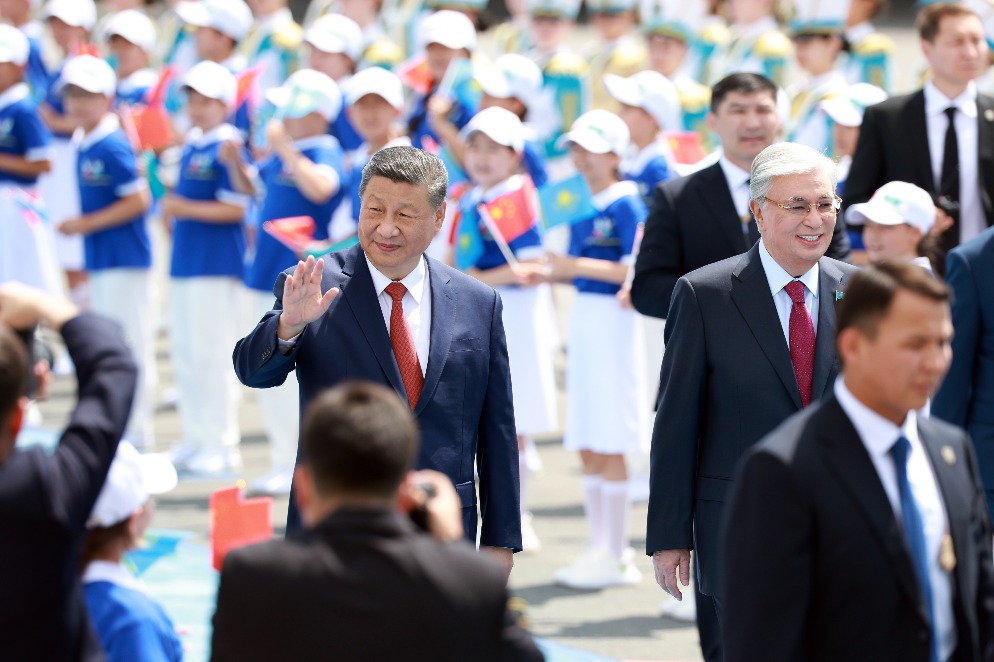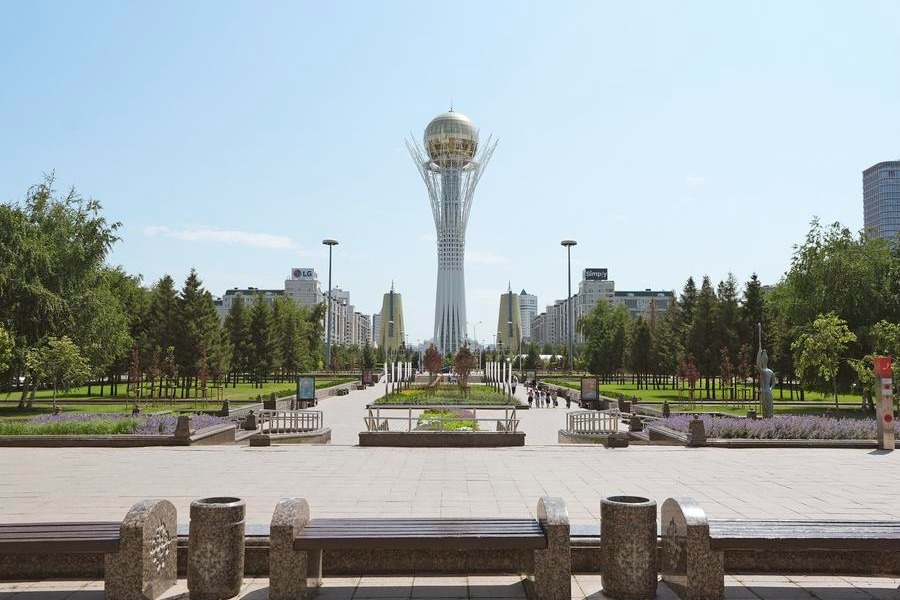Sino-Uzbek agro-cooperation fruitful


Editor's note: Since the first China-Central Asia Summit, cooperation between China and the five Central Asian countries in various fields has entered the fast track. Through the summit, China and the Central Asian countries will further consolidate mutual trust, build consensus on cooperation and deepen the synergy of strategies. Three experts share their views on the issue with China Daily.
One of Uzbekistan's key foreign policy priorities is to strengthen its strategic partnership with China in the new era and develop an "all-weather comprehensive strategic partnership" that fosters Sino-Uzbek cooperation.
During the COVID-19 pandemic, Sino-Uzbek partnership thrived in life sciences, healthcare and agriculture.
Amid global challenges such as climate change, droughts and land degradation, which affect agricultural development, Sino-Uzbek cooperation is yielding tangible and positive results. China is recognized globally for its achievements in the agriculture sector, from crop cultivation to processing, while Uzbekistan has a strong farming tradition and expertise in crop production.
Uzbekistan now puts greater emphasis on farming, processing agricultural products, advancing scientific research, and using the best international practices. For example, Uzbekistan has introduced Chinese Bt-cotton varieties and used "Xinjiang high-density planting cotton agro-technology" in the country.
In fact, Uzbekistan is already cultivating two herbicide — and bollworm-resistant Chinese cotton varieties. The two Chinese varieties' yield is about 7.5 tons of seed cotton per hectare, marking a significant increase.
Altogether, Uzbekistan has imported more than 20 new high-yield, early-maturing cotton varieties and cultivated those on 280,000 hectares. And more than 50 Chinese specialists are working in Uzbekistan to help improve the country's agronomy, productivity and product quality.
The Sino-Uzbek partnership in agriculture extends beyond cotton and includes capacity building, research collaboration, innovation, seed production and value chains through agro-processing. For instance, the Kunming Institute of Botany has partnered the Uzbek Academy to build the China-Uzbekistan Global Allium Garden. This partnership has played an active role in Sino-Uzbek crop breeding cooperation, germplasm exchange, and talent training.
Sino-Uzbek cooperation encompasses the development of corn and legume seeds, water-saving technology, animal feed production, and agro-processing, each yielding significant results.
Thanks to the trust-based investment climate fostered by the two governments, direct Chinese investment in Uzbekistan's agricultural sector continues to grow, with projects worth over $400 million being implemented, with Uzbekistan helping Chinese companies to establish seed production centers and clusters for cotton farming, a water-saving technology production center, and cotton-picking machine factories.
Uzbekistan has collaborated with China's "Yangling Agricultural Hi-tech Industries Demonstration Zone" to create the Tashkent-Yangling agro-technopark (a special economic zone), which helps transfer Chinese agro-technology to Uzbekistan. The park focuses on seed production, soil fertility, plant protection, and the commercialization of scientific research results.
Besides, more than 50 Uzbek agricultural experts were trained in China last year, and Tashkent State Agrarian University is working with prominent Chinese universities on joint academic programs, research, student and faculty exchanges, and implementation of innovative technologies.
In partnership with Northwest A&F University, five joint master's degree programs have been launched, offering 50 scholarships a year. A Chinese language center in Tashkent is teaching more than 40 students, and a joint laboratory with Guangdong Ocean University is working to improve the efficient use of saline-alkali soils.
From the 2024-25 academic session, 19 Uzbek students study at Anhui University. And while 28 professors are attending a month-long training program, 24 students are set to intern in China. Also, 15 Chinese professors are teaching horticulture, fruit growing and viticulture in Uzbekistan.
Sino-Uzbek cooperation is vital to developing a sustainable agricultural model and boosting Uzbekistan's agricultural potential through research and development, and innovation, sharpening the global competitiveness of the two countries.
The author is minister of agriculture of the Republic of Uzbekistan.The views don't necessarily reflect those of China Daily.
If you have a specific expertise, or would like to share your thought about our stories, then send us your writings at opinion@chinadaily.com.cn, and comment@chinadaily.com.cn.

































